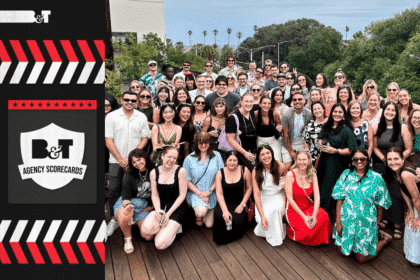As the Paris 2024 Paralympic Games gets underway on the other side of the world, more Australians could be tuning in than ever before thanks to growing awareness and changing attitudes on the need for greater disability equality and visibility in sports. New research from VisualGPS, Getty Images’ visual and creative research platform, found that 61 per cent of consumers in Australia and New Zealand (ANZ) are aware of the Paralympics, significantly higher than the global average (47 per cent).
Of the 500 consumers surveyed, 69 per cent agree that athletes with disabilities deserve the same media coverage as their non-disabled counterparts.
For this year’s Paralympic Games, TikTok has partnered with Paralympics Australia to create and highlight content from Paralympians sharing their experiences in Paris, underscoring the powerful role of social media and video content in engaging global audiences. The @paralympics account boasts over 4.4 million followers, with videos featuring #WheelchairBasketball, #ParaCycling, #ParaSwimming, #WheelchairRugby, and #BlindFootball collectively surpassing one billion views.
“A prominent reason for the growing popularity of the Paralympics is due to a concerted social media push on platforms like Tik Tok and Instagram not only to attract new audiences, but also to engage and deepen the connection with those already interested in sports.” said Kate Rourke, director of creative for APAC at Getty Images. “The data tell us that consumers want to see more content and coverage of disability in sport and for it to be shown in a real and authentic way. They also believe that this coverage is crucial for shaping public attitudes towards inclusivity and accessibility”.
“Consumers want authentic portrayals of athletes, not “inspiration porn”
The survey also reveals strong attitudes towards the role sports and mainstream media plays in representing and supporting the Paralympic games and disability in sports generally. Around three in four (72 per cent) consumers agree the portrayal of disability in sports media plays a crucial role in shaping public attitudes towards inclusivity and accessibility. Similarly, 74 per cent of consumers believe the media should highlight the stories and accomplishments of disabled athletes.
While 77 per cent of consumers believe The Paralympics appropriately represents disabilities, over the years criticism has been directed towards media, brands and sports associations generally on the portrayal of Paralympians. Some disability commentators and experts have called out “inspiration porn” as a too-common disability trope, where Paralympians have often been praised simply for taking part in sport, not because of their sporting abilities or fierce drive to win.
To tackle language bias, the IPC launched a new campaign this year called “I won’t be participating at the Paris 2024 Paralympic Games” on how athletes are competing, not participating.
“Media and brands can unintentionally reinforce harmful stereotypes by labelling disabled athletes as ‘inspiring’ solely due to their disability or by visualising them as ‘superheroes,’ which reduces their achievements to simplistic and often patronising tropes,” said Rourke. “Visuals and language matter in representing disability in sport and shaping perceptions. By focusing on the athleticism and individuality of athletes, media and brands can build deeper connections with audiences and promote a more inclusive, nuanced and genuine representation of disability”,
Consumers want to see the momentum beyond the Paralympic movement
While eight in ten (83 per cent) of consumers believe The Paralympics is important for the world of sports, consumers want to see disabled athletes represented in sports media and imagery more broadly. In fact, people want to see representations of disabled athletes over depictions of athletes with different body types or backgrounds, particularly among those who watch or follow sports.
Consumers want to see the support for disabled athletes continue beyond the Paralympics, with 73 per cent agreeing that it is important to provide support and resources for disabled athletes and sports programs modified to accommodate different abilities. Further, 68 per cent of consumers believe that embracing a disability-inclusive approach in sports encourages a more accepting and supportive environment for all athletes, across gender, ethnicity, body types and more.
“Currently across all media and advertising, approximately 1 per cent of content features people with disabilities,” said Rourke. “The Paralympics provides a powerful platform for spotlighting athletes with disabilities, but the data shows people want to see media coverage all year around, with increased interest for stories on how these athletes train, stay focused and stay mentally healthy. For brands, there is an opportunity to tell more diverse stories of people with disabilities across media, advertising and marketing, while ensuring they’re using the right visuals and language to depict them”.








